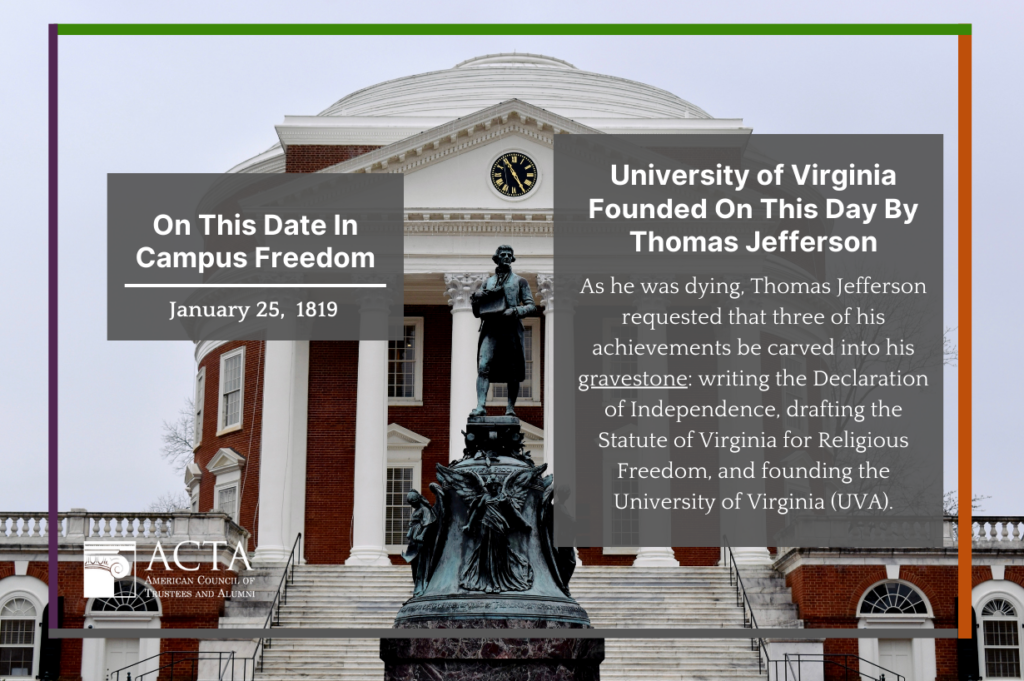ACTA in the NewsCosts
How one college spends more than $30M on 241 DEI staffers … and the damage it does to kids
One day after winning the national college football championship, the University of Michigan was recognized as a leading competitor...

As he was dying, Thomas Jefferson requested that three of his achievements be carved into his gravestone: writing the Declaration of Independence, drafting the Statute of Virginia for Religious Freedom, and founding the University of Virginia (UVA). President Jefferson was an indispensable statesman and leader of the new American nation from the 1770s through the conclusion of his presidency in 1809, serving as a delegate to the Second Continental Congress, Minister in France, the first U.S. secretary of state, and the country’s third president. In contrast with his at-times foe, later-friend John Adams, Jefferson was optimistic about what the new designs and principles of the United States could accomplish. According to Brown University Professor of History Emeritus Gordon Wood, “[Jefferson] believed that the world was getting better, becoming freer and more democratic, and that the new republic of the United States had a special role to play in fulfilling that future. . . . Despising monarchy, he became a true believer in the republican revolutions that he hoped would spread everywhere in the world.”
Although President Jefferson thought that excessive taxation and government spending threatened liberty, he made an exception for primary and secondary education. He firmly believed that education was a moral necessity for human flourishing and a direct means for bettering society. To that end, after his presidency, he set about establishing in his home state an “academical village,” a place for learning “so broad & liberal & modern, as to be worth patronising with the public support, and be a temptation to the youth of other states to come, and drink of the cup of knowledge & fraternize with us.” Thus, the University of Virginia was born on January 25, 1819. Jefferson’s advocacy for liberal republicanism and detestation for monarchs infused the early culture of self-government at UVa; in fact, the school did not hire its first president until 1905.
In recent years, some have called for the removal of Thomas Jefferson’s statue on campus, citing his ownership of over 600 slaves. Addressing the controversy, current UVA President Jim Ryan said in 2018, “As long as I am president, the University of Virginia will not walk away from Thomas Jefferson.” UVA Rector Whittington Clement recently remarked, “We are a University founded by Thomas Jefferson, and honoring his legacy and his contributions to our nation has, and will always be, an indelible part of what it means to live, learn and work here.”
One day after winning the national college football championship, the University of Michigan was recognized as a leading competitor...
Dr. Will is a writer and political commentator whose twice-weekly column has appeared in the Washington Post since 1974.
Launched in 1995, we are the only organization that works with alumni, donors, trustees, and education leaders across the United States to support liberal arts education, uphold high academic standards, safeguard the free exchange of ideas on campus, and ensure that the next generation receives an intellectually rich, high-quality college education at an affordable price.
Discover MoreSign up to receive updates on the most pressing issues facing our college campuses.